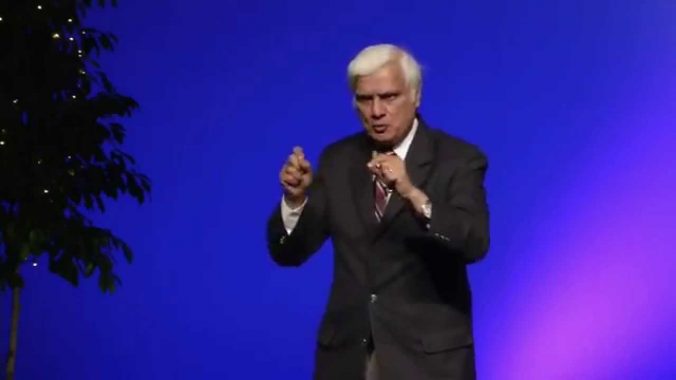
So begins Holy Roar (co-authored by Chris Tomlin). My younger daughter gifted me with the book. It intrigued me. I’ve never thought much about Israel’s worship. But this book made me wonder what I’d find if I could sneak back. More important is what it suggests for our worship today.
Holy Roar is built around seven Hebrew words. All are translated “praise” in our English Bibles. But all have radically different shades of meaning.
YADAH
Yadah means “to revere or worship with extended hands. To hold out the hands. To throw a stone or arrow.”
“May all the peoples praise (yadah), O God; may all the people praise (yadah) you” (Psalm 67:3).
“May all the people worship you with extended hands, O God; may all the people hold out their hands in praise to you” (Psalm 67:3).
HALAL
Halal means “to boast, to rave, to shine, to celebrate, to be clamorously foolish.”
“Let them praise (halal) his name with dancing and make music to him with timbrel and harp” (Psalm 149:3).
“Let them be clamorously foolish over his name with dancing and make music to him with timbrel and harp” (Psalm 149:3).
ZAMAR
Zamar means “to make music, to celebrate in song and music, to touch the strings or parts of a musical instrument.”
“I will sing a new song to you, O God; on a harp of ten strings I will sing praises (zamar) to you” (Psalm 149:9).
“I will sing a new song to you, O God; on a harp of ten strings I will celebrate with music to you” (Psalm 149:9).
TOWDAH
Towdah means “to extend the hand, to give thanks, to confess, to sacrifice praise, to give thanks for things not yet received.”
“In God I have put my trust, I will not be afraid. What can man do to me? Vows made to you are binding upon me, O God. I will render praises (towdah) to you” (Psalm 56:11,12).
“In God I have put my trust, I will not be afraid. What can man do to me? Vows made to you are binding upon me, O God. I will give thanks to you for what I have not yet received” (Psalm 56:11,12).
BARAK
Barak means “to kneel, to bless God (as an act of adoration), to praise, to salute, to thank.”
“All kings will bow down to him and all nations will serve him (Psalm 72:11) . . . Long may he live! May gold from Sheba be given him. May people ever pray for him and praise (barak) him all day long” (Psalm 72:15).
“All kings will bow down to him and all nations will serve him (Psalm 72:11) . . . Long may he live! May gold from Sheba be given him. May people ever pray for him and kneel in blessing to him all day long” (Psalm 72:15).
TEHILLAH
Tehillah means “a song to praise, a new song, a spontaneous song.
“But You are holy, Enthroned in the praises (tehillah) of Israel” (Psalm 22:3).
But You are holy, Enthroned in the spontaneous praise songs of Israel” (Psalm 22:3).
SHABAK
Shabak means “to address in a loud tone, to shout, to commend, glory and triumph.”
“One generation will commend (shabak) your works to another; they will tell of your mighty acts” (Psalm 145:4).
“One generation will commend your works with shouts to another; they will tell of your mighty acts” (Psalm 145:4).
Free to lift our hands in praise. Lay aside our inhibitions. Powerful (or simple) music to draw us into God’s presence. A sacrifice of praise to God in expectation of what he will yet do. On our knees in humble adoration. Spontaneously singing a new song to the Lord. Freedom to shout in triumphant praise. That’s the worship to which these words call us.
Please note that these are not the ravings of an extreme charismatic. They are, according to the Hebrew words, how Israel worshiped. And I’ve written them here as an encouragement to deepen our practice of praise.
I think every worship team should read this short book together. (There’s a “Reflection and Discussion” section for each chapter.)
But maybe you’re satisfied with worship at your church. Just think: our God is infinite; therefore, our worship should always be deepening.
Holy Roar is available from Amazon–https://www.amazon.com/Holy-Roar-Words-Change-Worship/dp/0692941495/ref=sr_1_1?ie=UTF8&qid=1533328617&sr=8-1&keywords=holy+roar+book+by+chris+tomlin.


 I’ve written several times about worship music. (See “Worship” on right -side column under “Categories”.) To add more, here are some wise words from Ravi Zacharias and his colleague.
I’ve written several times about worship music. (See “Worship” on right -side column under “Categories”.) To add more, here are some wise words from Ravi Zacharias and his colleague.
 According to one web site (
According to one web site ( 
 Been a long, hard day. Stress from the start. Running. Running, Running. Not a moment to stop. More to do than can be done. Weary, but no end. Worry, but no relief. What about tomorrow? The money? The kids? The house? The job?
Been a long, hard day. Stress from the start. Running. Running, Running. Not a moment to stop. More to do than can be done. Weary, but no end. Worry, but no relief. What about tomorrow? The money? The kids? The house? The job?
Recent Comments